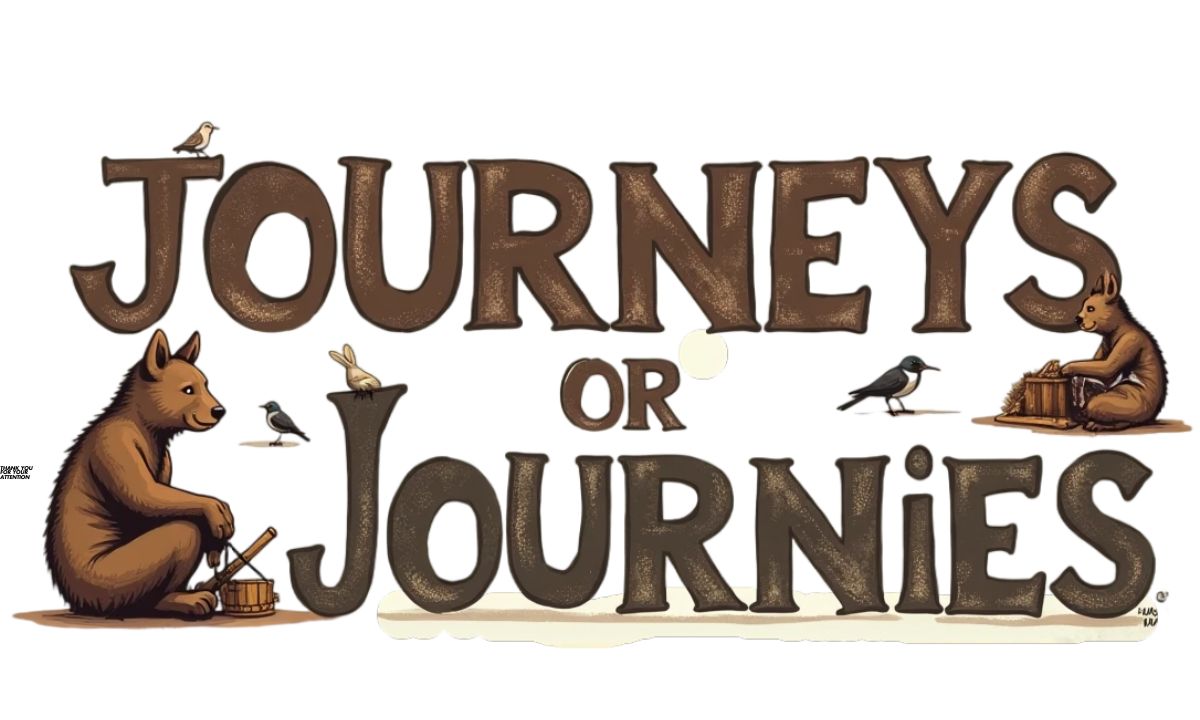Ever found yourself hovering over the keyboard, wondering whether to type “journeys” or “journies”? You’re not alone. This common spelling conundrum trips up writers of all levels, but today we’ll clear up the confusion once and for all.
Language shapes how we communicate our experiences, making it crucial to master even seemingly minor details like plural forms. When it comes to “journey,” this small but significant distinction can impact your writing’s professionalism and clarity.
Understanding the Plural Form of “Journey”
Let’s start with the definitive answer: “journeys” is the correct plural form of journey. This seemingly simple word follows a specific pattern in English pluralization rules that we’ll explore in depth.
English pluralization rules often perplex native and non-native speakers alike. The word “journey” belongs to a special category of nouns ending in ‘y’ that follows specific rules based on the letters that come before it. Understanding these patterns helps us navigate the complexities of English grammar with confidence.
Literal Journey
Every physical journey tells its own unique story. From Marco Polo’s historic expeditions to modern-day space exploration, humans have always documented their travels. These documented journeys serve as testaments to our adventurous spirit and desire to explore the unknown.
When we talk about physical travels – those actual trips from point A to point B – we’re dealing with literal journeys. Think about:
- Cross-country road trips
- International flights
- Sea voyages
- Train adventures
Picture this: “The travel blogger documented her journeys across five continents in 2023.” Notice how natural the correct plural form sounds in context?
Metaphorical Journey
Beyond physical travel, the concept of journey has evolved to encompass personal transformation and growth. In literature and psychology, experts often use journey as a metaphor for life changes, emotional development, and intellectual growth, making the correct plural form essential for clear communication.
Life’s paths often wind in unexpected directions, leading us through various metaphorical journeys:
- Career progression
- Personal growth
- Educational pursuits
- Emotional development
“Life is not about the destination, but about all the journeys we take along the way.” – Anonymous
Why “Journies” is Incorrect
Language evolution has given us many irregular plural forms, but “journies” isn’t one of them. This common misspelling stems from confusion with words like “babies” or “cities,” where the ‘y’ changes to ‘i’ before adding ‘es’. Understanding why this doesn’t apply to “journey” helps prevent similar errors with other words.
Despite its intuitive appeal, “journies” breaks a fundamental rule of English spelling. This mistake often stems from confusion about how to handle words ending in ‘y’. Let’s break down why this error occurs and how to avoid it.
The Vowel Before Y Rule
The presence of a vowel before the final ‘y’ in English words triggers a distinct pluralization pattern that dates back to Middle English. This rule emerged as English standardized its spelling conventions during the 15th and 16th centuries, creating consistency in how we form plurals.
Here’s the golden rule: When a word ends in a vowel + y, simply add ‘s’ to make it plural. Let’s look at some examples:
| Word Ending in Vowel + Y | Correct Plural | Incorrect Form |
| journey | journeys | journies |
| monkey | monkeys | monkies |
| valley | valleys | vallies |
| key | keys | kies |
| bay | bays | baies |
Spelling Rules for Plural Forms: A Quick Overview
English borrowed words from numerous languages throughout its history, leading to various pluralization patterns. These patterns, while sometimes seemingly arbitrary, follow historical and linguistic principles that help maintain consistency in modern usage.
Understanding broader pluralization rules helps cement the correct usage of “journeys”:
- Vowel + Y Words:
- Add ‘s’ (journeys, monkeys)
- No spelling change needed
- Consonant + Y Words:
- Change ‘y’ to ‘i’ and add ‘es’
- Example: baby → babies
- Special Cases:
- Proper nouns ending in ‘y’: The Kennedys
- Compound words: passersby
Common Mistakes in Plural Forms
Research shows that pluralization errors account for roughly 12% of all writing mistakes in English. Understanding these common pitfalls helps writers avoid embarrassing errors and maintain professional credibility in their communications.
Let’s examine frequent pluralization errors:
Most Common Plural Form Mistakes:
- Using ‘ies’ when ‘ys’ is correct
- Mishandling compound nouns
- Irregular plural confusion
- Apostrophe misuse
Journey Plural Usage in Context: Real-Life Examples
Example 1: Career Journey
“Sarah’s multiple journeys through different industries – from tech startups to nonprofit work – enriched her professional perspective.”
Professional development experts increasingly recognize that careers rarely follow linear paths. Modern career trajectories often involve multiple pivots, transitions, and parallel paths, making the accurate description of these multiple journeys essential in professional discourse.
Example 2: Spiritual Journey
“The philosopher wrote about her spiritual journeys through various belief systems, documenting each transformation.”
Anthropologists and religious scholars have documented how different cultures describe spiritual development through the metaphor of journeys. This universal concept appears in religious texts and philosophical writings across civilizations, emphasizing the importance of correct terminology.
Why Accurate Pluralization Matters in Writing
Studies by leading linguistics researchers reveal that proper grammar significantly influences reader perception. A 2023 study showed that business communications containing grammar errors reduced reader confidence by up to 45%, highlighting the importance of mastering these fundamental rules.
Proper grammar builds credibility. Consider these statistics:
- 96% of business leaders say poor grammar affects professional credibility
- 72% of readers notice spelling errors immediately
- 59% of hiring managers reject candidates due to poor grammar
Improve Your Writing Skills: Tips for Correct Plural Usage
Cognitive science research indicates that understanding the underlying patterns of language, rather than memorizing individual cases, leads to better long-term retention. This approach helps writers internalize rules and apply them consistently across different contexts.
Master pluralization with these strategies:
- Memory Tricks:
- “If there’s a vowel before y, just add s and say goodbye!”
- Create mnemonics for common words
- Practice Methods:
- Keep a list of challenging plurals
- Use spelling apps
- Regular writing exercises
- Digital Tools:
- Grammar checkers
- Writing assistants
- Online dictionaries
Conclusion
Mastering the plural form of “journey” might seem like a small detail, but it’s these nuances that separate good writing from great writing. Remember: when you see a vowel before that final ‘y’, simply add an ‘s’ to create the plural form. Your journeys through the English language will be all the smoother for it.
Quick Reference:
- ✅ Correct: journeys
- ❌ Incorrect: journies
Ready to enhance your writing skills further? Share this guide with fellow word enthusiasts and check out our other grammar resources. After all, we’re all on this journey of continuous improvement together!

